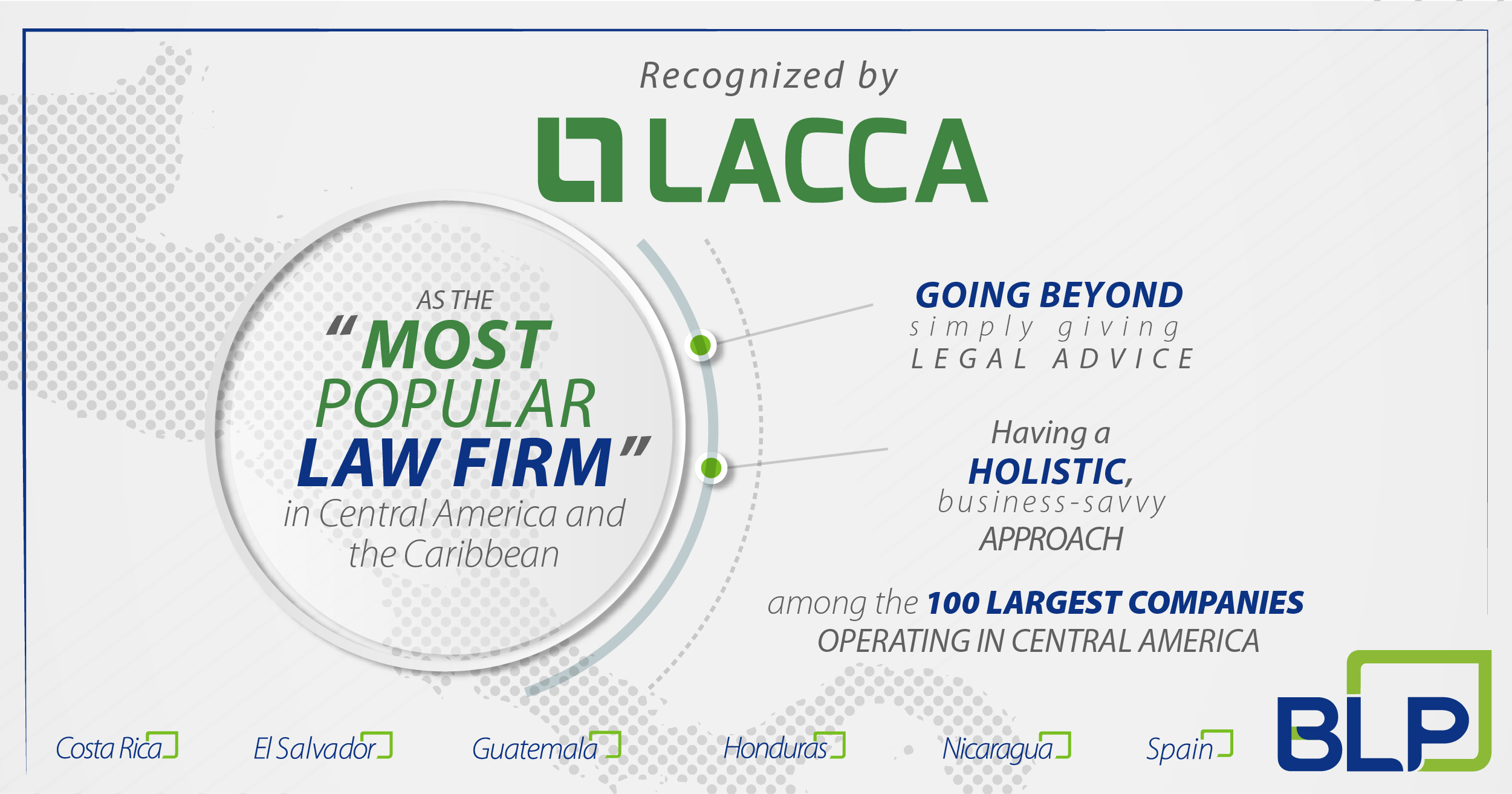Competition between law firms is tough. With so many options to choose from, window shopping has become the norm for many GCs looking for external counsel in Latin America. Loyalty is important to GCs, but legal teams are not afraid to shake things up and shop around for the best fit for their company.
The most popular Central American and Caribbean firms
Our survey positions BLP top of the list for Central America, with 25 of the region’s largest companies hiring the firm. Consortium Legal comes in second place, advising 19 companies, while Arias works with 15.
2019 was an election year for several Central American countries. Guatemala’s Jimmy Morales was replaced by conservative candidate Alejandro Giammattei – but not before Morales had time to shut down UN-backed anti-corruption unit International Commission Against Impunity in Guatemala in September. Meanwhile, in El Salvador, President Nayib Bukele won elections in early 2019, taking office in July with the highest approval rating of any Latin American president in history. He is pushing for improvements to the country’s security, especially to tackle drug cartels and gang violence, which is expected to bring greater certainty for foreign investors, especially in the agribusiness sector, which has historically been victim to cartel activity. Both Guatemala and El Salvador’s new center-right presidents are expected to introduce more business-friendly reforms to make their countries more attractive to both foreign and local business owners.
In 2019 Nicaragua and Costa Rica both passed tax reform aimed at growing their public deficits, in doing so creating considerable work for law firms in these jurisdictions. But corruption continues to be a huge hurdle to foreign investors in Nicaragua, some of which are unconvinced that the political situation there is stable enough for large or long-term investments.
Public officials ensnared in corruption create doubt for businesses looking to invest in Nicaragua and other jurisdictions in Central America. Such high-profile individuals include Honduran President Juan Orlando Hernández’s brother, politician and former deputy in the National Congress of Honduras, Juan Antonio Hernández Alvarado. He was found guilty of accepting bribes from drug trafficking cartels in early 2019.
In recent years, anti-government protests in Honduras, Nicaragua, and Guatemala have led to an increased demand for labor and litigation work, as businesses forced to close during the protests face the repercussions. However, cross-border transactions and financing work has occupied many of Central America’s biggest firms, despite the backdrop of uncertainty.
More information on the source at Which law firms do Latin America’s biggest companies like best? by LACCA The Latin American Corporate Counsel Association.



